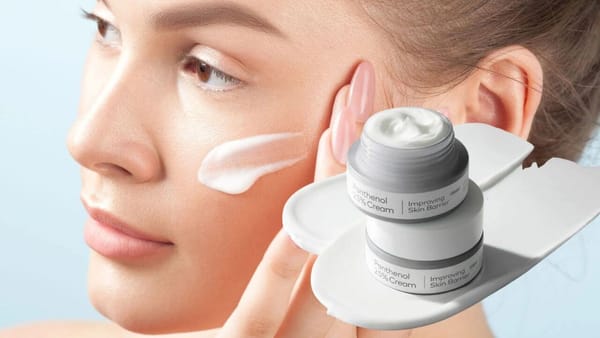Key Takeaways:
- Dash cam footage can be used as evidence by the police in various legal scenarios.
- Understanding privacy laws and your rights is crucial when using dash cams.
- Regularly checking and maintaining your dash cam ensures the quality of recordings.
Introduction
Dash cams have become increasingly popular among drivers, providing a sense of security and a way to document incidents on the road. But a common question arises: can the police use your dash cam against you? This article explores the legal ramifications of dash cam footage, how law enforcement can use it, and what drivers need to know to protect their rights.
The Role of Dash Cams in Modern Driving
Dash cams serve as a silent witness to everything that happens on the road. They record video footage and, in some cases, audio recordings of your driving experience. This can be particularly useful in the event of a car accident, hit-and-run accidents, or traffic violations. Auto and truck dash cam footage can provide crucial evidence to determine what happened and who was at fault.
However, the use of dash cam isn't just limited to protecting yourself. The police can also use your dash camera footage against you. If your dash cam footage shows you driving recklessly or committing a traffic violation, it can be used as evidence in court. This is why it's essential to understand the legal implications of dash cam usage.
Legal Implications of Dash Cam Footage
When it comes to the legal system, dash cam use can be a double-edged sword. On one hand, it can exonerate you by providing clear evidence that you were not at fault in an accident.
On the other hand, it can also incriminate you if it shows you breaking the law. Police officers can request your dash cam footage as part of their investigation, and in most cases, you are required to comply.
It's important to note that privacy laws vary by jurisdiction. In some areas, recording audio without the consent of all parties involved can be illegal.
Therefore, it's crucial to be aware of the laws in your area regarding dash cam recordings. Always ensure that your dash cam is set to comply with local regulations to avoid any legal issues.



How Police Use Dash Cam Footage
Police officers can use dash cam footage in various ways. For instance, if you are involved in a serious accident, the footage can help determine who was at fault. In cases of hit-and-run accidents, dash cam footage can provide valuable information about the other vehicle involved.
Additionally, if you are pulled over for a traffic violation, the police may request to see your dash cam footage to verify your account of the incident.
In some cases, police departments may even ask the public to submit dash cam footage to help solve crimes. For example, if a crime occurs in a public place and your dash cam captured the incident, your footage could be crucial in identifying the perpetrator.
This highlights the importance of regularly checking your dash cam to ensure it is functioning correctly and recording high-quality video.
Privacy Concerns and Dash Cam Usage
Privacy is a significant concern when it comes to dash cam usage. While dash cams can provide valuable evidence, they can also infringe on the privacy of others.
For instance, recording audio without the consent of all parties involved can lead to legal issues. Additionally, recording on private property without permission can also be problematic.
To avoid privacy issues, it's essential to understand the laws in your area regarding dash cam recordings. Make sure your dash cam is set to comply with these laws, and be mindful of where and what you are recording.
By doing so, you can protect yourself from potential legal issues while still benefiting from the security that a dash cam provides.
The Importance of Maintaining Your Dash Cam
Regularly checking and maintaining your dash cam is crucial to ensure it is functioning correctly and recording high-quality footage. This includes checking the camera's position, ensuring the lens is clean, and verifying that the device is recording properly.
Additionally, it's essential to regularly back up your recordings to a secure device to prevent data loss.
By maintaining your dash cam, you can ensure that it provides reliable evidence in the event of an accident or traffic violation. This can be particularly important when dealing with insurance claims or legal cases, as poor quality footage may not be admissible in court.
Therefore, taking the time to regularly check and maintain your dash cam can save you a lot of trouble in the long run.
Dash Cams and Insurance Claims
Dash cam footage can be incredibly valuable when dealing with insurance claims. If you are involved in a car accident, the footage can provide clear evidence of what happened, helping to determine who was at fault. This can be particularly useful in cases where there are conflicting accounts of the incident.
Insurance companies often rely on dash cam footage to assess claims and determine liability. By providing clear and high-quality video evidence, you can support your claim and potentially expedite the claims process. However, it's important to ensure that your dash cam is functioning correctly and recording high-quality footage to avoid any issues with your claim.
Dash Cams in Criminal Cases
Dash cam footage can also play a significant role in criminal cases. For instance, if you witness a crime while driving, your dash cam footage can provide valuable evidence to the police. This can help identify the perpetrator and support the prosecution's case in court.
In some cases, police departments may even request the public to submit dash cam footage to help solve crimes. This highlights the importance of regularly checking your dash cam to ensure it is functioning correctly and recording high-quality video. By doing so, you can contribute to public safety and support law enforcement efforts.
The Role of Dash Cams in Traffic Violations
Dash cam footage can be used to verify traffic violations and support police investigations. For instance, if you are pulled over for speeding, the police may request to see your dashcam footage to verify your account of the incident. This can help determine whether you were indeed speeding or if there were other factors involved.
Additionally, dash cam footage can be used to contest traffic violations in court. If you believe you were wrongly accused of a traffic violation, your dash cam footage can provide evidence to support your case. However, it's important to ensure that your dash cam is functioning correctly and recording high-quality footage to avoid any issues with your case.
Privacy Laws and Dash Cam Usage
Privacy laws regarding dash cam usage vary by jurisdiction. In some areas, recording audio without the consent of all parties involved can be illegal. Additionally, recording on private property without permission can also be problematic. Therefore, it's crucial to be aware of the laws in your area regarding dash cam recordings.
To avoid privacy issues, make sure your dash cam is set to comply with local regulations. Be mindful of where and what you are recording, and always obtain consent when necessary. By doing so, you can protect yourself from potential legal issues while still benefiting from the security that a dash cam provides.



The Benefits of Dash Cams
Despite the potential legal implications, dash cameras offer numerous benefits. They provide a sense of security and peace of mind, knowing that you have a reliable witness to everything that happens on the road. This can be particularly useful in the event of an accident or traffic violation, as the footage can provide clear evidence of what happened.
Additionally, dash cams can help improve your driving habits. Knowing that you are being recorded can encourage you to drive more carefully and follow traffic laws. This can help reduce the risk of accidents and traffic violations, ultimately making the roads safer for everyone.
Choosing the Right Dash Cam
When choosing an auto or truck dash cam, it's important to consider several factors. First, ensure that the camera records high-quality video and audio. This is crucial for providing clear evidence in the event of an accident or traffic violation. Additionally, consider the camera's storage capacity and whether it supports continuous recording.
It's also important to choose a dash cam that is easy to install and use. Look for a camera with a user-friendly interface and clear instructions. Finally, consider the camera's durability and reliability. A high-quality dash cam should be able to withstand various weather conditions and continue recording without any issues.
Summary
Dash cams can be a valuable tool for drivers, providing crucial evidence in the event of an accident or traffic violation.
However, it's important to understand the legal implications of dash cam usage and ensure that your camera complies with local regulations.
By regularly checking and maintaining your dash cam, you can ensure that it provides reliable evidence when you need it most.
FAQ
Can the police use your dashcam against you?
Yes, the police can use your dash cam video against you if it shows you breaking the law or driving recklessly. It's important to be aware of the legal implications of dashcam usage and ensure that your camera complies with local regulations.
Is it legal to record audio with a dash cam?
The legality of recording audio with a dash cam varies by jurisdiction. In some areas, recording audio without the consent of all parties involved can be illegal.
Check with your local police department to be aware of the laws in your area regarding dash cam recordings and ensure that your camera complies with these regulations.
How can dashcam footage help with insurance claims?
Dashcam footage can provide clear evidence of what happened in the event of a car accident, helping to determine who was at fault. This can be particularly useful when dealing with insurance claims, as it can support your claim and potentially expedite the claims process.
Don't forget to check out our article on the best truck dash cams for you!


















